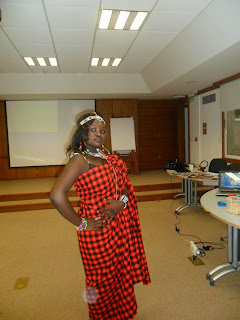Disability Awareness Month Series- Part (ii)- A focus on undiagnosed and neurodivergent disabilities
Dr. Harun Hassan, Director, National Council for Persons with Disabilities (NCPWD- Kenya)
4th Annual Inclusive Africa Conference hosted by inABLE
Did you know that an estimated 15% of the African population (1.4 Billion) is living with a disability? That's almost 220 million people who continue to face social, physical, and online barriers on a daily basis. Yet, many of these disabilities go undiagnosed or untreated, resulting in individuals struggling to understand their differences and navigating a world that isn't always accommodating.
 |
| An image showing different neurodivergent disabilities was downloaded from Pinterest. |
Moreover, many adults are also diagnosed with disabilities later in life, whether through self-discovery or medical intervention or in this day and age by watching a video on social media and realizing they can relate and suddenly life makes sense. Who they are now makes sense. It's important to support and embrace these individuals as they navigate their newfound identities. These disabilities might impact their work, social life, or daily routines, but with understanding and accommodations, they can live fulfilling lives.
It's time to change our mindset and be more accommodating. Instead of focusing on what individuals with disabilities can't do, let's focus on their strengths and how we can level the playing field. This involves creating accessible physical spaces, utilizing assistive technologies, and providing accommodations in the workplace and education systems.
According to Forbes, "A neurodiverse employee might also be known as a "sensitive striver." .... All that they need is an employer who can see and embrace this potential and make any adjustments necessary".
By embracing disability, we can build a more equitable and inclusive society that values diversity. Everyone deserves an equal chance to access opportunities and live a fulfilling life. Let's work towards breaking down barriers and creating a society centered on inclusion.
"Design enables accessibility! We need to bring those two words together"
Rama Gheerawo, Director, The Helen Hamlyn Centre for Design


.jpeg)
Comments
Post a Comment
Hello, Feel free to share your ideas,I would love to have your feedback, regards.